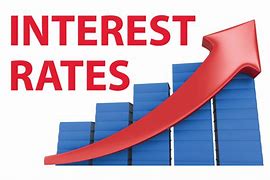 In May we saw the first rise in the RBA cash rate in over 11 years from a historic low of 0.10%pa to 0.35%pa and if you have a variable rate loan, this increase would have now been passed on. You may now be thinking, if rates are going to continue to rise, should I go fixed or stay variable?
In May we saw the first rise in the RBA cash rate in over 11 years from a historic low of 0.10%pa to 0.35%pa and if you have a variable rate loan, this increase would have now been passed on. You may now be thinking, if rates are going to continue to rise, should I go fixed or stay variable?
Variable interest rates are on the rise but so are fixed rates.
Interest rates will continue to rise, but by how much? Economists at the Big 4 Banks vary in their forecasts, with the cash rate ranging between 1.6%pa to a possible high of 2.25%pa by the end of 2023. General opinion seems to be that the cash rate will then be stable throughout 2024.
Fixed interest rates are largely based on future interest rate expectations, and this can move quickly. In the past 3 months, it was not uncommon to see the same lender increase their fixed rates on a weekly basis.
Looking at the current difference between fixed and variable rates for one major Bank, the difference between the lowest variable rate and lowest 3-year fixed rate is about 2.55%pa. If you go for 5 years, the difference is about 3.05%. The difference being much higher than their own economist forecast.
Fixed vs Variable Rate
The main reason why people will consider fixing interest rates is either:
- They expect variable rates to rise higher than current fixed rates, so it becomes cost-effective over the fixed rate period to choose a fixed rate now, or;
- They want the certainty of loan repayments over the immediate future.
In my experience, trying to figure out where interest rates will be in a few years is difficult. Even the professionals get it wrong. Economic conditions can change unexpectedly, and rates can move significantly – both up and down. I find that the main advantage in choosing a fixed interest rate loan is the certainty it brings. This is particularly advantageous for borrowers with tight budgets who may find it easier to work with known loan repayments in their cashflow planning.
Even when a fixed rate loan is deemed appropriate, it is rare to have all lending fixed as there are still advantages in having a variable rate, particularly if the goal is to make extra repayments in the short term.
Some strategies to consider
With the alternative to paying a higher price premium with a fixed rate loan, here are some strategies for variable rate borrowers:
Overpay when possible
If possible, pay extra on your regular loan repayment. By paying extra now, not only will it help reduce the loan balance and interest charged, when your repayments are revised for the higher rate, you may not feel it so much from a cashflow perspective.
Furthermore, if you have extra savings, make use of any linked 100% offset account. If you don’t have an offset, just deposit any extra savings straight to your loan. Most variable rate loans have a redraw capability which allows you to draw on any surplus finds in the loan. A redraw feature is useful in helping to reduce interest costs and repaying your debt earlier. Please remember, there is no redraw available on fixed rate loans, so check first before making any extra repayments.
Ask for a rate review
Chances are that when you when you took a loan, you obtained a really good rate at the time. However, home lending is very competitive and rates between lenders change over time. Ask your existing lender if they can provide a better rate on your loan. Often, you will receive a lower rate, even if it is only a small one.
Refinance
After you have asked for a review of your interest rate and if you are not satisfied, then it might be time to look elsewhere. Banks are constantly in competition for new customers, and they will often offer better rates to attract new customers. Some even an offer extra incentive in the form of cash rebates to refinance an existing loan from another lender.
Avoid Other Debt
Unsecured loans such as credit cards and Buy Now Pay Later schemes provide convenience, particularly if you pay it off in full on time. However, if you find that you do have unsecured debt, it may be worthwhile to consolidate them to your home loan. If this is being considered, you will want to make sure that the loan term is reasonable as you really don’t want to refinance a credit card debt over 30 years.
Individual circumstances and requirements differ so if you are seeking further guidance on your loan or just have some questions, please don’t hesitate to make contact to discuss.
